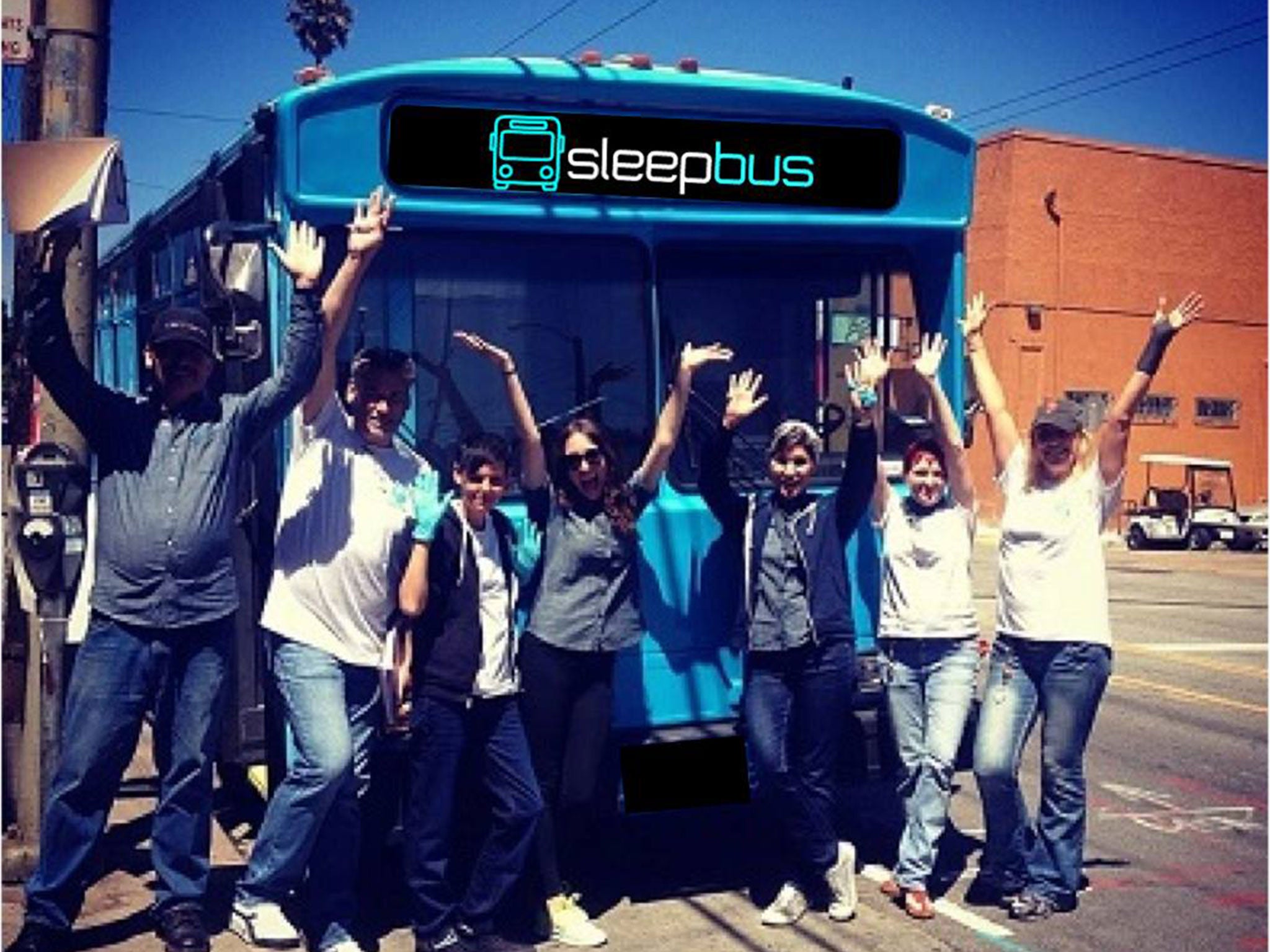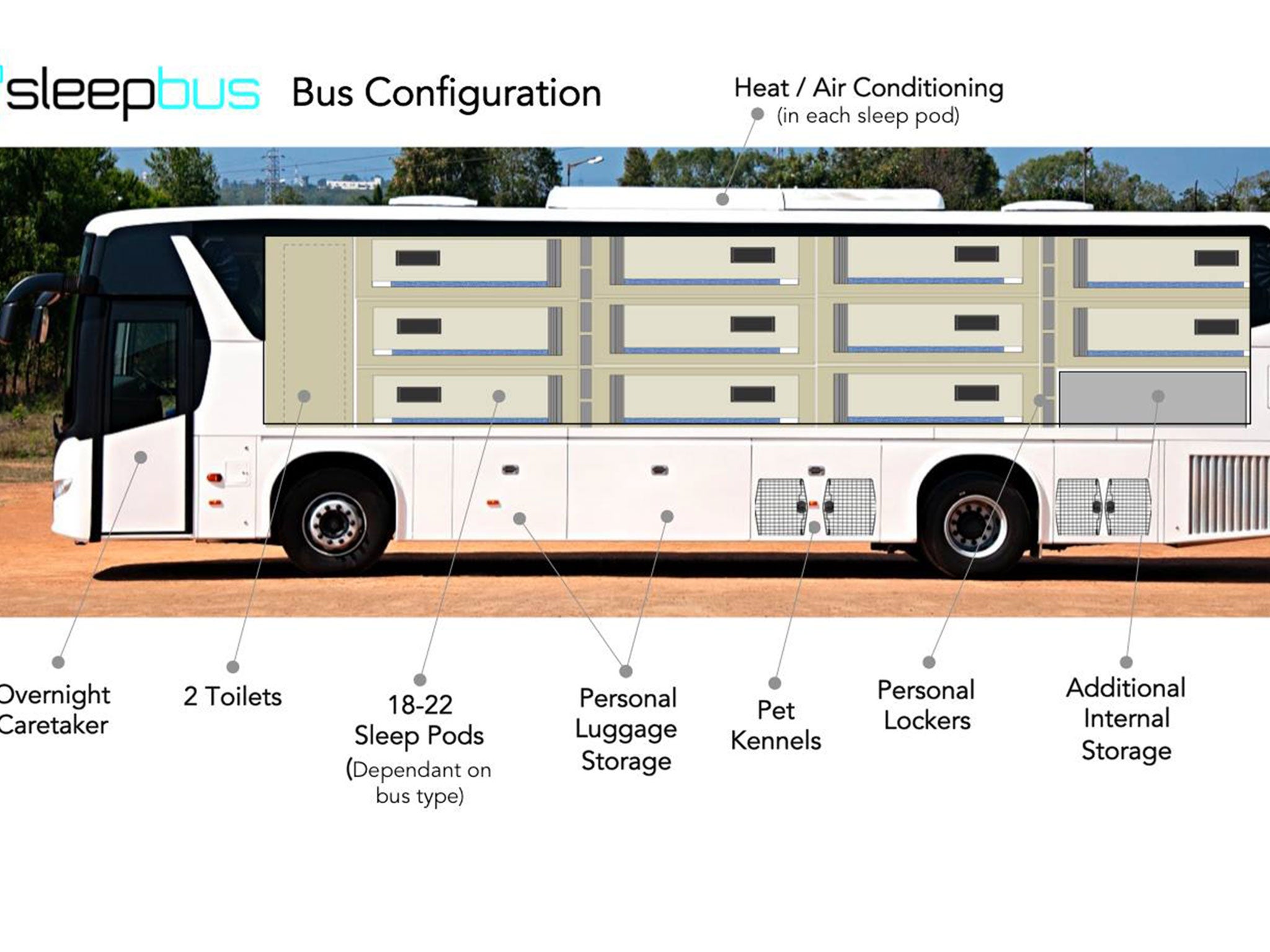Sleepbus: Entrepreneur to convert old buses into shelters for homeless people
'Sleepbus' will focus on giving the homeless a good night's rest

Your support helps us to tell the story
From reproductive rights to climate change to Big Tech, The Independent is on the ground when the story is developing. Whether it's investigating the financials of Elon Musk's pro-Trump PAC or producing our latest documentary, 'The A Word', which shines a light on the American women fighting for reproductive rights, we know how important it is to parse out the facts from the messaging.
At such a critical moment in US history, we need reporters on the ground. Your donation allows us to keep sending journalists to speak to both sides of the story.
The Independent is trusted by Americans across the entire political spectrum. And unlike many other quality news outlets, we choose not to lock Americans out of our reporting and analysis with paywalls. We believe quality journalism should be available to everyone, paid for by those who can afford it.
Your support makes all the difference.Business pragmatism is not usually associated with tackling homelessness.
However, an Australian entrepreneur is applying his business skills in a bid to end rough sleeping.
Simone Rowe, 43, of Melbourne, is, in his own words, a “fix-it guy.”
He wants to create a solution to the problem of homelessness in Australia by creating ‘Sleepbuses’ which will shelter rough sleepers overnight.
“In my work, I fix problems and my style is to simplify things,” Mr Rowe told The Independent.
He is applying the same approach to homelessness.
The Sleepbus won’t feed or clothe people, it will just focus on getting them a good night’s rest.
The project, the trial period of which is scheduled to begin at the end of May, will see buses converted into mobile shelters for the homeless.
Each will house 22 individual ‘sleep pods’ with facilities like lockers and USB chargers, in addition to two toilets on the vehicle.
“Businesses don’t like bricks and mortar homeless shelters,” Mr Rowe said.

“They don’t want these people wandering around the streets near their businesses."
“I don’t agree with that but it is the mentality.”
Sleepbus is in part a “mobile marketing strategy,” helping to get businesses and corporations on board with the project.
The buses are also cheaper and faster to build than a permanent building, at an estimated cost of 50,000 AUD per bus, which will take about one week to fit.
The problem of homelessness in Australia is on the increase, Mr Rowe believes. While the 2011 census estimated 6,314 people were sleeping rough in the country, many people are expecting that number will increase with this year’s census.
Critics have argued that leading people to buses, which will be gone by the morning, may lead society to sweep the issue of homelessness under the rug.
However, Mr Rowe responds that this is already the case, and providing a night’s sleep in monitored accommodation (a ‘caretaker’ will be on each bus) is a safer option than on the streets.
But what if a troubled guest was to overdose and die on board?
“It’s going to happen, but I don’t think we should be afraid of it,” he said.
“If something happens in a Sleepbus, there’s a better chance that they can get help than if they’re under a bridge.”
The Sleepbus will not provide healthcare or other services, as the main focus will be on providing a good night’s rest, enabling rough sleepers to think more clearly and be healthier.
“Just being able to sleep through the night, warm and safe can give a person a whole new outlook on life,” Mr Rowe said.
There has already been interest from sleep specialists at a Sydney hospital on what outcomes the project will have.
The project itself was inspired by a chance meeting Mr Rowe had with a rough sleeper in St Kilda East, Melbourne last year. After speaking with the man, he was struck by his exhaustion.
He was also reminded of a period of homelessness in his own life, when he was forced to sleep in his car for four months before being able to rent a new apartment.
The campaign has been strongly driven by social media, crowd funding and volunteers, and is attracting interest from around the world.
Mr Rowe estimates that over 300 buses would be needed to provide ‘safe sleeps’ every night of the year, an ambition he hopes to achieve in six years.
Once up and running locally, Sleepbus is to be expanded nationwide.
Join our commenting forum
Join thought-provoking conversations, follow other Independent readers and see their replies
Comments